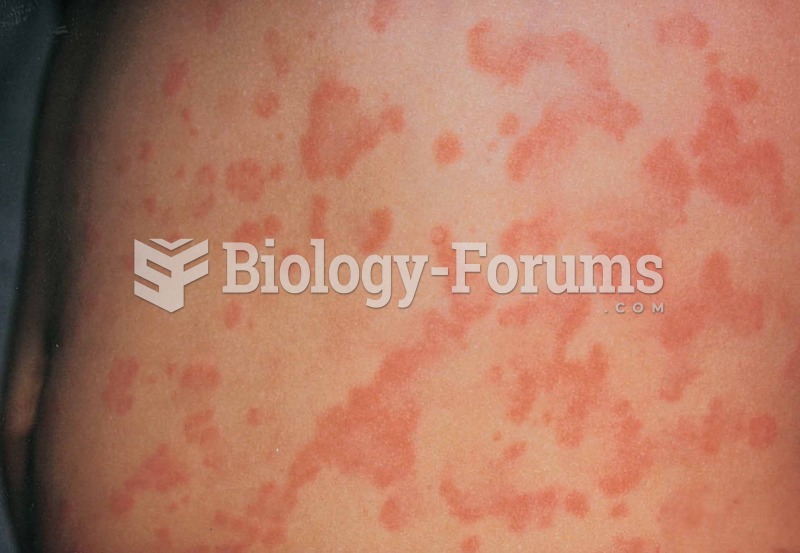|
|
|
Immunoglobulin injections may give short-term protection against, or reduce severity of certain diseases. They help people who have an inherited problem making their own antibodies, or those who are having certain types of cancer treatments.
After 5 years of being diagnosed with rheumatoid arthritis, one every three patients will no longer be able to work.
There are 60,000 miles of blood vessels in every adult human.
Illness; diuretics; laxative abuse; hot weather; exercise; sweating; caffeine; alcoholic beverages; starvation diets; inadequate carbohydrate consumption; and diets high in protein, salt, or fiber can cause people to become dehydrated.
Medication errors are more common among seriously ill patients than with those with minor conditions.







